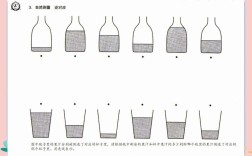Training the mind, or cognitive training, is a systematic process designed to enhance mental abilities such as critical thinking, problem-solving, creativity, and emotional regulation. It involves structured exercises, deliberate practice, and reflection to strengthen neural pathways and improve cognitive flexibility. Unlike casual learning, cognitive training is targeted and progressive, aiming to build specific skills that can be applied across various aspects of life, from academic performance to professional success and personal well-being.

The Foundations of Cognitive Training
Cognitive training is rooted in the principles of neuroplasticity—the brain’s ability to reorganize itself by forming new neural connections throughout life. This means that with consistent practice, individuals can strengthen weaker cognitive areas and optimize mental performance. The process typically begins with identifying areas for improvement, such as memory retention, attention span, or logical reasoning, and then selecting appropriate exercises to target those domains. For example, someone struggling with focus might engage in mindfulness meditation, while a person aiming to enhance decision-making could practice scenario-based problem-solving.
Key Components of Effective Cognitive Training
- Targeted Exercises: Cognitive training should be specific to the skills being developed. For instance, working memory can be improved through tasks like remembering sequences of numbers or images, while critical thinking can be honed by analyzing complex arguments or identifying logical fallacies.
- Consistency and Progression: Regular practice is essential for meaningful change. Training should be structured in a way that gradually increases in difficulty to challenge the brain and prevent plateauing. A beginner might start with simple puzzles and advance to complex strategy games over time.
- Feedback and Reflection: Monitoring progress and adjusting strategies based on feedback is crucial. For example, keeping a journal to track problem-solving approaches or using apps that provide performance metrics can help identify areas for improvement.
- Multidisciplinary Approach: Combining different types of exercises yields better results. For instance, pairing physical activity (which boosts blood flow to the brain) with mental challenges like chess or language learning can enhance overall cognitive function.
Tools and Techniques for Cognitive Training
Several tools and methods are commonly used in cognitive training, each targeting different mental skills. Below is a table summarizing some popular techniques and their benefits:
| Technique | Targeted Skills | Examples | Benefits |
|---|---|---|---|
| Puzzles and Games | Problem-solving, memory | Sudoku, crosswords, chess, Lumosity | Enhances logical reasoning and mental agility |
| Mindfulness Meditation | Attention, emotional regulation | Focused breathing, body scans, mindful walking | Reduces stress, improves focus |
| Strategy Games | Planning, decision-making | Go, Risk, video games like Civilization | Develops long-term thinking and adaptability |
| Language Learning | Memory, multitasking | Learning new vocabulary, practicing grammar | Boosts brain plasticity and cognitive reserve |
| Creative Writing | Creativity, verbal fluency | Journaling, storytelling, poetry | Fosters imagination and expression |
Practical Applications of Cognitive Training
Cognitive training is not limited to academic or professional settings; it has broad applications in daily life. For students, it can improve study efficiency by enhancing information retention and comprehension. Professionals can benefit from sharper decision-making and better stress management in high-pressure environments. Even older adults can use cognitive training to delay age-related decline and maintain mental sharpness. For example, older adults who regularly engage in brain-training games have shown slower rates of memory loss compared to those who do not.
Challenges and Considerations
While cognitive training offers numerous benefits, it is not without challenges. One common issue is the lack of motivation, as maintaining a consistent routine can be difficult. To address this, individuals can set clear goals, track progress, and vary exercises to keep the process engaging. Another challenge is the risk of overtraining, which can lead to burnout. It is important to balance mental exercises with rest and physical activity to avoid cognitive fatigue. Additionally, not all cognitive training programs are equally effective; those that are evidence-based and tailored to individual needs tend to yield better results.
The Future of Cognitive Training
Advancements in technology are revolutionizing cognitive training. Apps like Elevate, CogniFit, and Peak offer personalized training programs that adapt to users’ performance levels. Virtual reality (VR) is also being explored as a tool for immersive cognitive exercises, particularly in rehabilitation settings. Furthermore, research into brain-computer interfaces (BCIs) may soon enable real-time feedback and more precise training protocols. These innovations hold the potential to make cognitive training more accessible, engaging, and effective.
FAQs
How long does it take to see results from cognitive training?
Results from cognitive training can vary depending on factors such as the individual’s baseline abilities, the consistency of practice, and the complexity of the exercises. Generally, noticeable improvements may be observed within 4-6 weeks of regular training, but significant gains often require 3-6 months of consistent effort. It is important to remember that cognitive training is a gradual process, and patience is key.
Can cognitive training help with age-related cognitive decline?
Yes, cognitive training has been shown to help mitigate age-related cognitive decline. Engaging in mentally stimulating activities can build cognitive reserve, which is the brain’s ability to withstand neurological damage. Studies have found that older adults who participate in regular cognitive training tasks, such as puzzles or memory exercises, experience slower rates of memory loss and improved overall brain function compared to those who lead less mentally active lifestyles. However, it is most effective when combined with a healthy lifestyle, including physical exercise, proper nutrition, and social interaction.










